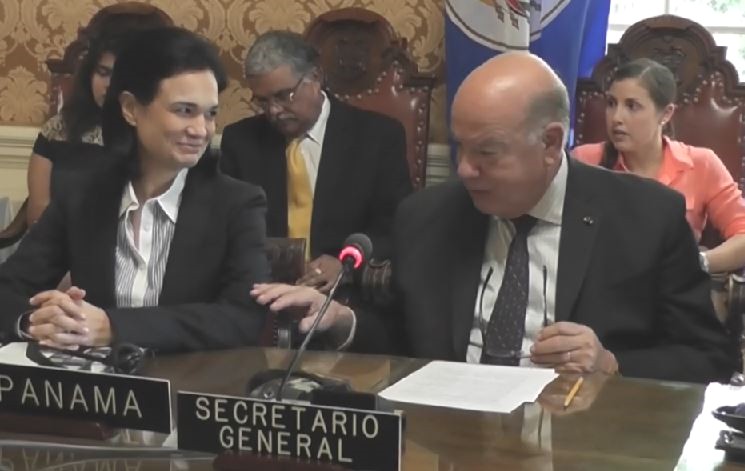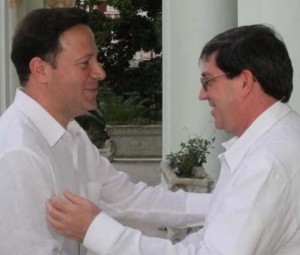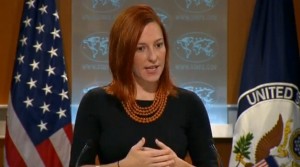
Cuba’s seat at Summit of Americas is at issue — again
Panama’s Foreign Minister, Isabel Saint Malo, met in Washington on Wednesday (Sept. 3) with José Miguel Insulza, secretary general of the Organization of American States (OAS) to make plans for the Seventh Summit of the Americas, which will be held next April in Panama.
Later, both took part in a session of the Joint Summit Working Group, which coordinates the role of 12 international institutions that will provide logistical and financial support for that gathering.
Saint Malo, who is also Panama’s Vice President, met also with U.S. Secretary of State John Kerry. This was Saint Malo’s first visit to Washington since the government of President Juan Carlos Varela took office last July.

Although Cuba’s participation in the 2015 Summit was not publicly mentioned Wednesday, the issue is an important one. At the latest OAS General Assembly meeting held in Paraguay’s capital, Asunción, in early June, delegates from at least 20 countries spoke in favor of inviting Cuba to next year’s event.
Cuba’s membership in the OAS was suspended in 1962.
Venezuela, Ecuador, Nicaragua, Bolivia and Argentina said that they would not show up at the summit if Cuba is not invited.
“If Cuba is excluded, we consider ourselves excluded as well,” said Bolivian Foreign Minister Diego Pary Rodríguez. Brazilian envoy Jose Felicio called Cuba’s inclusion “a necessary condition [for] the continuity of constructive dialogue” toward greater integration.
Secretary General Insulza seemed to agree at the time, when he said: “If we talk about inclusion, we cannot exclude anyone. All countries of this region and the Caribbean must be present.”

No doubt, Washington’s opposition to Cuba’s presence was one of the topics of the conversation Wednesday between Saint Malo and John Kerry.
The State Department’s spokeswoman, Jan Psaki, declined to comment on an invitation by Panama to Cuba, referring reporters “to the Government of Panama for any questions regarding formal invitations.”
She repeated the United States’ position that “the maintenance […] of the rule of law and strict respect for the democratic system are […] an essential condition of our presence at this and future summits,” perhaps suggesting that if Cuba is invited, the U.S. will not show.
Washington does not believe that Cuba meets those requirements, “so we should […] encourage — and this is certainly our effort — the democratic changes necessary for Cuba to meet the basic qualifications” for membership in the OAS.
“But of course,” Psaki added, “we look forward to the day when all 35 countries in the region can participate in the summit process.”
[Photo above of Isabel Saint Malo and José Miguel Insulza during the Summit meeting of Sept. 3. Photo is from an O.A.S. video report.]

